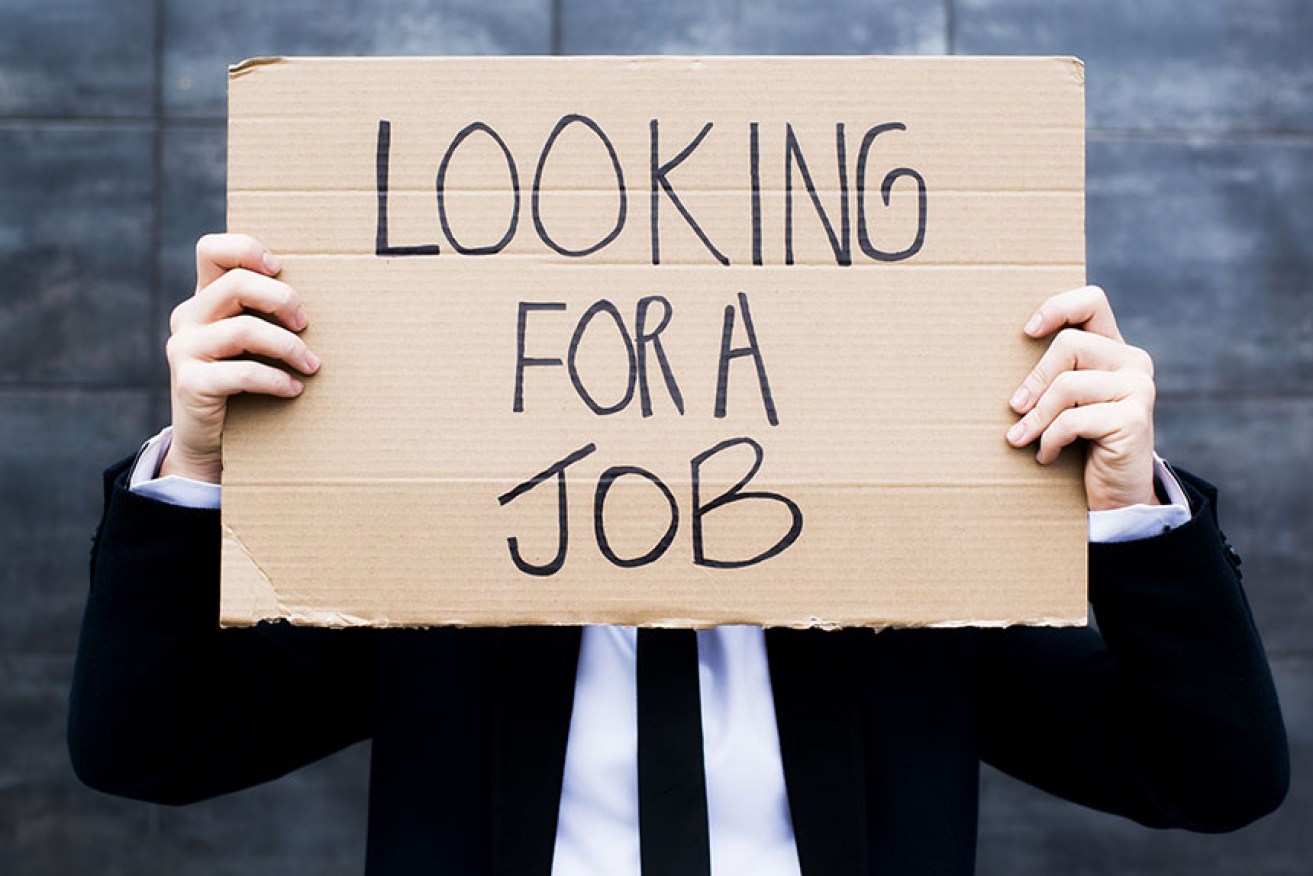Jobs-growth figures yet another confirmation of weak economy


Employment growth has more than halved over the past six months. Photo: Shutterstock
There was something for everyone in Thursday’s labour market statistics, leaving most of the immediate commentary confused.
And it showed.
Yes, the seasonally adjusted unemployment rate for February dropped to the merest fraction below 4.95 per cent, and thus was rounded to down to 4.9 per cent in the headline number, the lowest level in eight years.
Yet employment growth was lower – the dip in the unemployment rate came from fewer people looking for work.
But the real story was first spied by The Age economics correspondent, Shane Wright.
Last 6 months trend full time employment growth – 28.9k, 25.5k, 21.2k, 17.2k, 14.7k and now 12.3k. That's a trend.
— Shane Wright (@swrighteconomy) March 21, 2019
The commentariat – and presumably the Reserve Bank board – had been wondering why economic growth had softened but employment growth was strong.
They need wonder no more. Employment growth is indeed softening.
The apparent paradox has been answered by one of the more reliable labour market clichés: “Employment/unemployment is a lagging indicator.”
The government might well be regretting not calling an early election before the statistics for economic growth, retail sales, consumption and employment all turned south.
That’s what has the money-market pricing in at least one RBA interest rate cut this year.
Prime Minister Scott Morrison will be hoping there will be no rate cut before the federal election – enough voters are smart enough to know a central bank trimming interest rates from the current low level is a bad sign.
But while the PM is hoping, he might also start fearing.
The RBA has a tendency to cut rates at the same board meeting that considers the bank’s quarterly Statement on Monetary Policy (SoMP). The next SoMP will be published on May 10, after the May 7 board meeting and just days before the likely May 18 election.
The RBA has shown before that it’s not afraid to move rates before an election if it thinks rates need moving. Another set of weak numbers next month could be particularly interesting.
Aust Feb jobs +5k, < 15k mkt exp & down from +39k in Jan. Full time jobs -7k. Could be slowing as per job ads but too early to tell. Unemp 4.9% from 5% with participation falling. Overall no strong signal. Unlikely to see #RBA cutting next mth. Trouble is its a lagging indicator
— Shane Oliver (@ShaneOliverAMP) March 21, 2019
I suspect the mandarins will be feeling a little chastened by the March meeting board minutes showing they had misread the economy.
As much as Governor Philip Lowe would like to keep his monetary powder dry, there’s no prize for being too late to act.
And there was another little embarrassment for the RBA board on Thursday. The minutes had recorded the board members noting that private-sector wages growth “was more pronounced once bonuses and commissions were included”.
Thursday’s RBA bulletin included research showing bonuses flow overwhelmingly to just the top 3 per cent and do very little indeed for most people.
“If we include bonuses, there is a bit more evidence of higher wages growth outcomes at the top of the distribution,” wrote analyst Hannah Leal. “However, this strength is only evident above the 97th percentile, which means that, if there are pockets of strength in the economy, they are confined to a very small fraction of jobs.”
There’s no comfort there for a government facing an election that is very much about wages growth – or the lack thereof.
Indeed, the key finding of the research paper is that even with lower unemployment and some skills shortages, wages growth is likely to be gradual.
“Increasing wages is one of many strategies firms use to address skills shortages and is, at times, only chosen after a range of other responses.”
(Translation: Paying more has become employers’ last resort. Business is on a wages growth strike.)
“This may dampen the short-run effect of skills shortages on wages growth.”
(Translation: Even with a substantially lower unemployment rate, wages will take a while to rise.)
“However, because this pattern of choices was also common prior to the 2008 financial crisis, it does not fully explain the recent weakness in wages growth.”
(Translation: The RBA doesn’t really know why wages growth is so sluggish either.)








